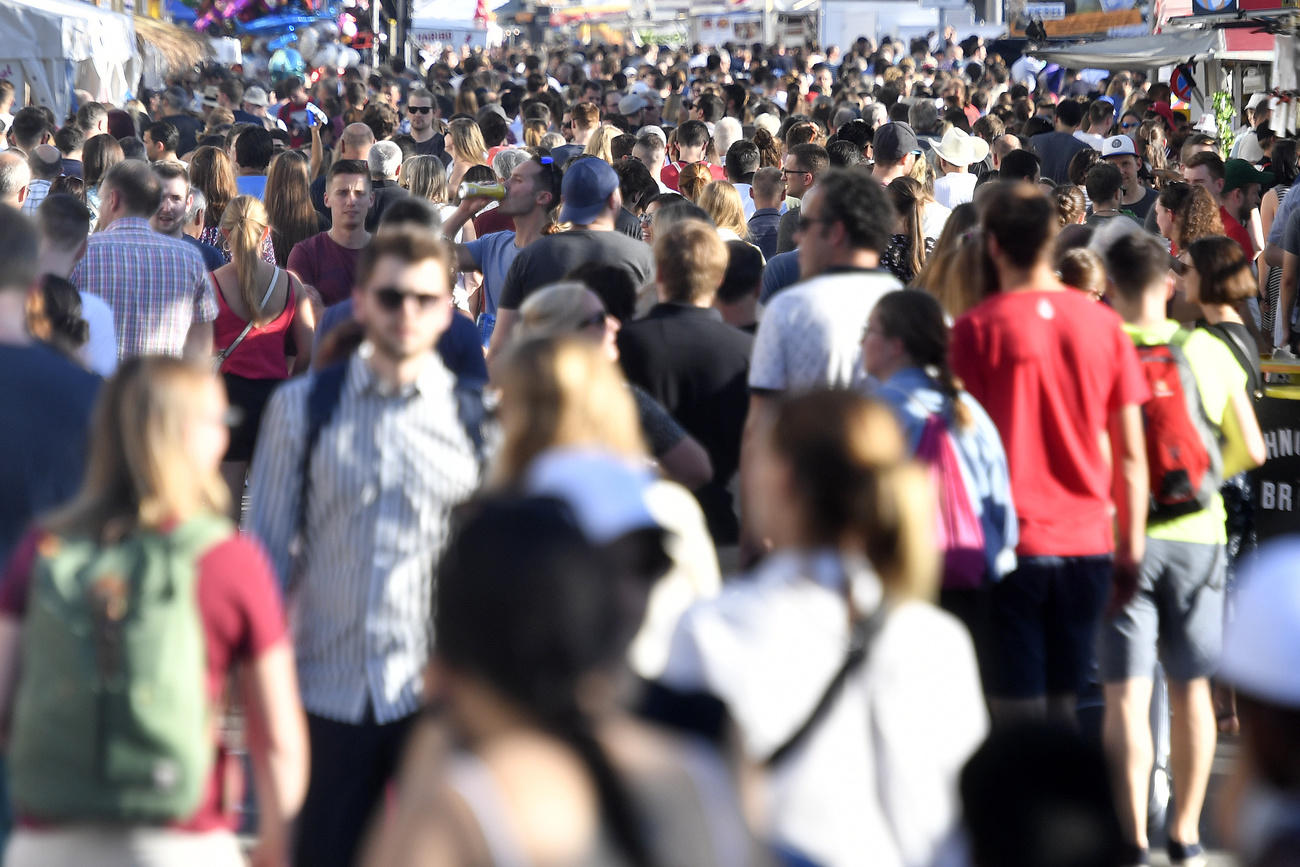
Swiss population continues to age and diversify

In 2019, the Swiss population grew in size, aged, and became slightly more foreign, according to annual statistics published on Thursday.
Overall, the population grew by 0.7% to reach 8,603,900 residents, the Federal Statistical Office (FSO)External link wrote – a rise similar to that in 2018, albeit a slow-down compared to the preceding decade, when annual growth was over 1%.
One of the growth areas continued to be the share of foreign nationals, which increased by 1.2% and now make up 25.3% of the population. Again, however, this rise was smaller than that over the past decade.
Canton Geneva has the most foreign residents, at just under two-fifths, although the growth of foreigners in the southwestern canton was lower than the national average. Geneva also had the highest growth rate of Swiss citizens (1.1%) – much of this due to naturalisations.
At the other end of the scale, the small canton of Appenzell Inner Rhodes is the most “Swiss”: some 11.3% of the population is foreign in the canton, a number that is decreasing.
Immigration accounted largely for the overall rise in population, the FSO said: last year, just over 170,000 people came to the country (+0.4%). Emigration declined to 123,000 (-5.4%).
Not quite the young ones
Another trend that continues to mark Swiss demography is the ageing population: those 65 or older increased by 1.8% in 2019 and now make up just under one-fifth of the total. The share of young people (0-19-years-old) fell slightly to 19.9%.
A dozen cantons now have more elderly than young people, including Ticino, which was also the canton with the highest natural decline in its population.
At the end of 2019, Switzerland was the home to some 1,600 people over the age of 100.

More
Defining the 25% foreign population in Switzerland

In compliance with the JTI standards
More: SWI swissinfo.ch certified by the Journalism Trust Initiative






























You can find an overview of ongoing debates with our journalists here . Please join us!
If you want to start a conversation about a topic raised in this article or want to report factual errors, email us at english@swissinfo.ch.